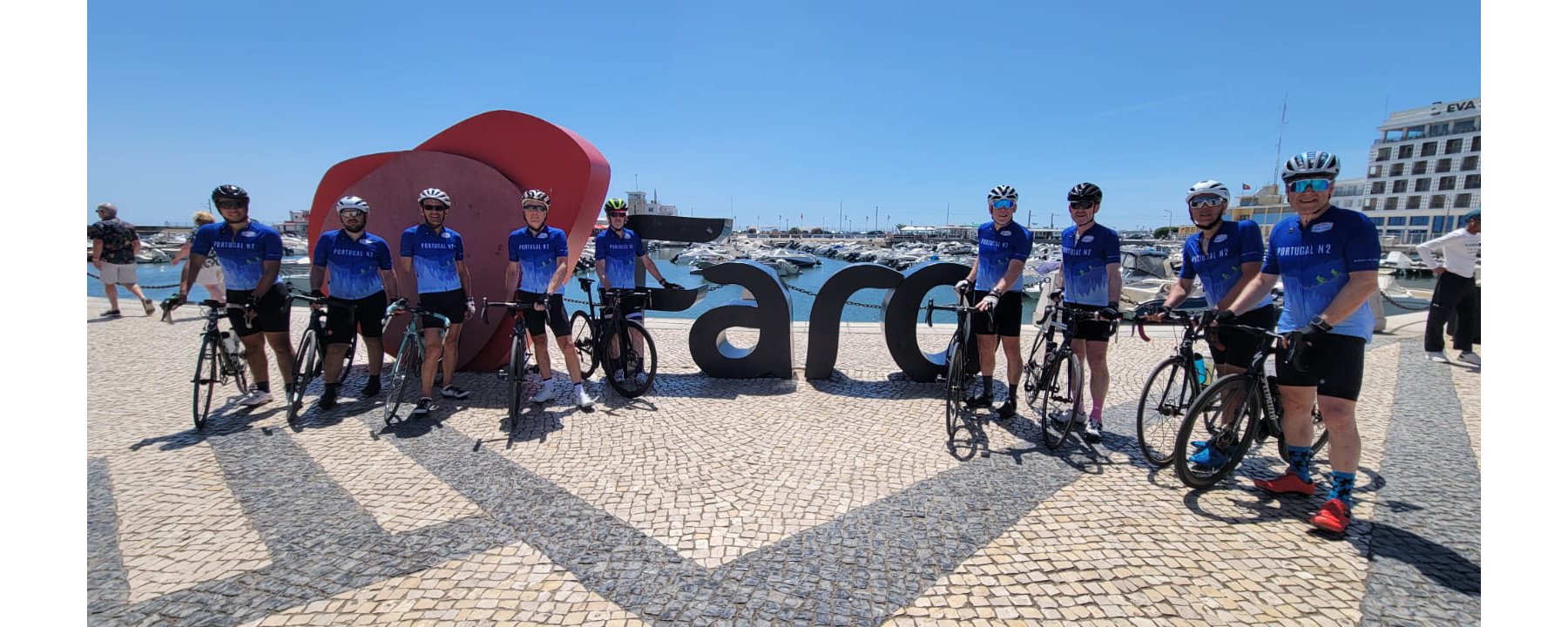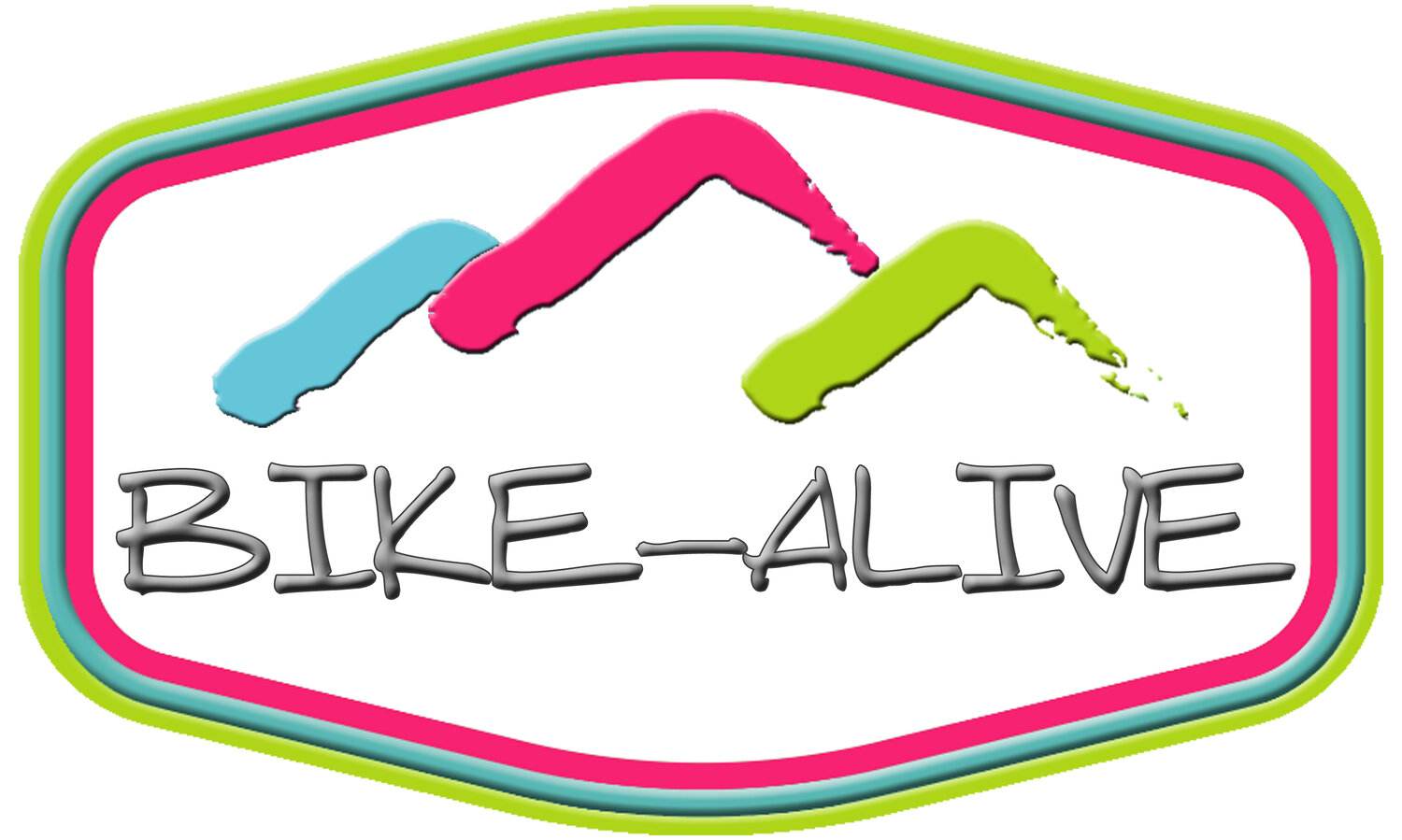
N2 END TO END5-DAY CHALLENGE
Portugal is one of the undiscovered jewels of Europe; a country of diverse landscapes, amazing architecture, and fascinating history. There’s no more intimate a way to experience it that than on a bike. We roughly follow the legendary N2, the spine of Portugal, starting in Chaves, in the lush, green North, and travel through the fairly flat, arid centre, with its endless vineyards, fruit plantations and olive groves, finally arriving in the charming, ancient city of Faro.
£1,650, 6 NIGHTS
We offer this tour in two options. This page describes the 5-day challenge (6 nights). Or if you’re looking for something a bit more relaxed, it’s also available as a 7-day tour (8 nights), which you can see here.
735KM, AROUND 10,000 METRES OF CLIMBING
Portugal is one of the least developed countries in Europe, and that gives it a quaint, unspoiled character that makes it the perfect destination for cyclists. The N2 is known as the spine of Portugal and has been the road that connects the North to the South for centuries. In parts it’s a winding, hilly road, and in others it’s a dead straight Roman road, passing through pretty cobbled towns and villages, and through endless Eucalyptus forests, vineyards, fruit and olive groves. We stay in some wonderful hotels, enjoy all the local food specialities, and of course, we have to try all the amazing, local wines. 3-course dinners with beer or wine are all included in our tours.
The Portuguese climate lends itself to tours in spring and autumn, when the days aren't too hot. All in all, Portugal is a beautiful place, full of history and culture, and we're sure you'll really enjoy exploring it.
ARRIVAL DAY
We'll be at Porto airport to meet you, and then we'll take you to our beautiful, historic hotel in Chaves, where we’ll have all the tools and pumps you need to assemble your bike. Depending on your arrival time, you’ll probably be able to go off and explore this ancient Roman town before dinner, or even take your bike out for a test run - perhaps the 10km to the Spanish border and back. “Chaves” means “keys”, and was historically a border stronghold known as the Keys of the Kingdom, hence the name. It’s also a Roman spa town, famous for its healing waters. Finally we'll enjoy a delicious dinner while we brief you on the trip and then it's off to bed for a good night's sleep.
DAY 1 - CHAVES TO VISEU - 171 KM, CLIMBING AROUND 3,000 METRES
After a hearty breakfast (eggs are fairly standard at all hotels in Portugal) we head off to the start of our tour, the little roundabout that marks the beginning of the N2. A quick photo opportunity with the first road marker, and then we’re off, following the Rio Tâmega as we head south towards the Douro Valley, one of the oldest wine producing regions in the world. You’ll see milestones at every kilometre along the route, but also mini, numbered markers denoting each 10th of a kilometre in between. Some towns and villages even make a big display of their position along the route.
At first the roads are fairly straight - “What did the Romans ever do for us ?” :0) - with long, gentle climbs, as we pass through forests of pine and the ubiquitous Eucalyptus. Portugal is one of the world’s major producers of Eucalyptus (who knew?), used for making paper and essential oils, but it comes at a price - it greatly increases the devastation of forest fires, and Portugal has had some enormous forest fires in the last ten years. When that stuff burns, it burns! After about 40km the road gets quieter, and then you can see a long, beautiful bridge that spans a deep valley. We usually like to have a stop for coffee about a third of the way into the day, and then lunch once we’re over half way. The terrain is much hillier now and we start to see glimpses of vineyards - and then suddenly that’s all you can see as you descend down the steep hills and terraces of the Douro Valley, a UNESCO World Heritage Site, with its wineries and the estates (or quintas) of one famous wine or port producer after another. We cross the river Douro and make the steady, but demanding climb (about 30km) through rocky terrain, on winding roads, up the Serra da Bigorne, where there’s a café if you need a reward at the top. Then we have the equally long descent to Castro Daire, where we cross the Rio Paivô. Another short climb, only a couple of kilometres, and then we’re descending again to the Rio de Mel. It’s up and down (only short climbs) for the rest of the day, through sleepy, cobbled villages. We finally arrive in the interesting and historic city of Viseu, where we’re staying the night.
DAY 2 - VISEU TO - SERTA - 173 KM, CLIMBING AROUND 2,400 METRES
We leave Viseu and dip down into a forest, passing underneath the motorway, and the road surface is a bit challenging for a while, but it does get better. We ride through Tondela, well known in Portugal for its football club, as well as its local wines - we’re in another big wine-producing area of Portugal, the Alentejo, which translates as “beyond the Tagus river”. Things ramp up as the landscape is heavily carved by the many rivers that we cross. There’s one fairly big climb in the second half of the day (about 14km), but for the rest, it’s just up and down constantly. We travel through mixed terrain - vineyards, olive groves and eucalyptus forest, interspersed with scrubby land and more cork trees - to cross the Rio Dão, after which we’re climbing again. Still on the N2, we follow alongside the new motorway for a while, before the two roads finally converge, and we turn away to find quieter roads and more interesting views. We cross the Rio Mandego, which is the boundary between two different regions in Portugal - Viseu and Coimbra. Portugal is still very much a Catholic country, and you’ll see churches and little shrines just about everywhere. The roads are fairly straight between the climbs, where there’s usually a hairpin or two to help you out. At around 90km we turn sharp left and we’re back on the official N2 again. At Góis we start the 14km climb up to Amieiros; there’s a café at the top where you might like to stop for a rest and a drink. Then we have a fairly long descent down to the Ribeira de Mega, followed by a little bump in the road, and we arrive in Pedrógão Grande, where we cross the stunning Cabril dam. Finally we drop down into the town of Sertã where we’re staying in a beautiful and historic convent.
DAY 3 - SERTA TO MONTARGIL - 110 KM, CLIMBING AROUND 1,000 METRES
We climb fairly steeply out of Sertã via the scenic route, before joining the fairly quiet N2 again, and continue on to Vila de Rei. The terrain here is quite rocky, with sparse vegetation, but it’s also very open, with amazing views. There are a number of climbs (nothing too scary), but some big, sweeping descents, and we gradually lose altitude throughout the day. At about 35km we pass the N2 380km marker, and then shortly after the amazing Caminho de Mémorias (Path of Memories) mural. We descend to cross the big Tagus river, and now it’s much easier and we cover distance very quickly. We ‘re riding across a big plain, surrounded by wheat fields, until we arrive in the small town of Bemposta. A short climb, and then we’re descending into Ponte de Sor, well known for its cork production. You can definitely describe the terrain now as “undulating”, and we’re gradually climbing. Finally we arrive in Montargil, where we’re staying the night, overlooking the beautiful lake formed by the Montargil Dam.
DAY 4 - MONTARGIL TO ALJUSTREL - 160 KM, CLIMBING AROUND 1,500 METRES
We start out riding alongside the lake, before crossing the Montargil Dam, and continuing our ride to Mora, and then on to Montemor o Novo with its narrow cobbled streets, and ruined castle on a hill overlooking the town. The cork oaks on the side of the road provide welcome shade as we ride out of the town and across the Campo Branco, or white plains. We travel on long, straight, quiet roads, through endless wheat fields, interrupted only by the regulation small cobbled towns and villages with their whitewashed houses and brightly-painted window trims. We’re still in the Alentejo wine region, and apart from some wonderful wines, these small towns produce olive oil and delicious cheeses. We drop down into the pretty town of Torrão on the banks of the River Xarrama, and then carry on to Ferreirra do Alentejo. Onwards again, through more wheat fields, interspersed with random cork oaks and olive groves, until we arrive in the pretty town of Aljustrel with its whitewashed houses and terracotta roofs.
DAY 5 - ALJUSTREL TO FARO - 120 KM, CLIMBING AROUND 1,200 METRES
The road is flat for about 20km until we arrive in Castro Verde, and you may well see the markers on the sides of the roads which are called Windows on the Plains. These are stylised house profiles which include a window, to encourage visitors to look at and appreciate the panorama. The main industry in Castro Verde is zinc and copper mining. The roads are still straight at first, and we pass through the town of Almodovar, which was historically a centre for shoe manufacturing, and on again, with the road snaking more and more as we start to climb up to Caldeirãno, from where you can see for miles over the stunning landscape. This is the highest point of our day and now we have the rolling, winding descent, past the N2 700km marker and the town of São Brás de Alportel, and then you can almost smell the sea as we make the final 20km descent down into Faro. You’ll have time for a beer before we enjoy a wonderful dinner with plenty of wine, beer and laughter while we reminisce on our mutual adventure.
DEPARTURE DAY
After breakfast we load up and deliver you to Faro airport or train station. Unless, of course, you want to stay and enjoy a few extra days in Faro.
WHAT’S INCLUDED
Airport transfers • Accommodation in 3 & 4* hotels, in shared ensuite rooms (single rooms are available and a supplement of £325 applies) • Buffet-style breakfasts every morning • 3-course evening meals every night, with water, wine, beer, soft drinks and coffee • Snacks to keep you going during the day, such as bananas, crisps, nuts, cakes, fruit and chocolate, plus quality energy gels and bars • Bottled water, as well as High5 Zero electrolyte tablets • Maps of the route for you to refer to as you ride • GPS files for you to upload to your device and follow during the day • High quality Gobik Portugal N2 souvenir jersey
2026 DATES
PAY BY BANK TRANSFER OR BANK CARD - 20% DEPOSIT WITH BOOKING, BALANCE 10 WEEKS BEFORE ARRIVAL











